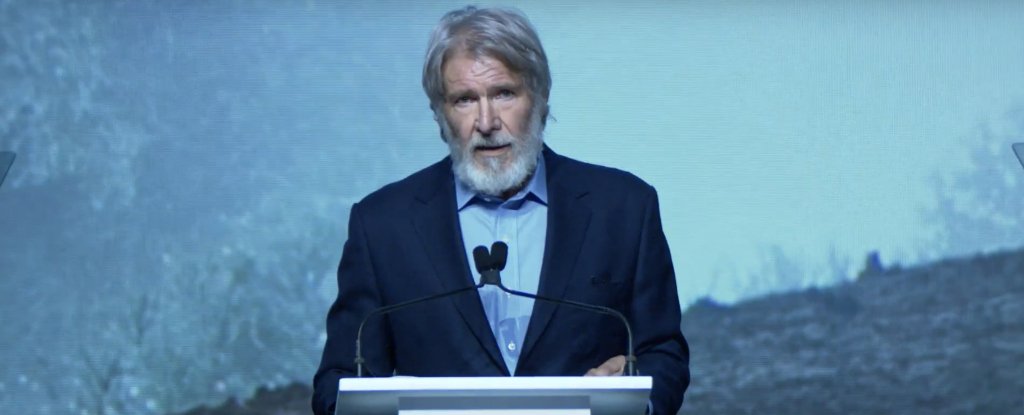
Introduction
Legendary actor Harrison Ford, known for his iconic roles in films such as “Star Wars” and “Indiana Jones,” has long been a vocal advocate for environmental conservation and scientific literacy. Recently, he has made headlines with a powerful statement urging the public to stop giving power to those who do not believe in science. His comments come at a critical time as the world faces numerous challenges that require science-based solutions, from climate change to the COVID-19 pandemic.
Harrison Ford’s Advocacy
A Voice for the Environment
Harrison Ford has used his celebrity status to draw attention to environmental issues for decades. As a board member of Conservation International, he has actively participated in campaigns to protect endangered species, conserve rainforests, and combat climate change. His passion for these causes is evident in his public speeches and interviews, where he often emphasizes the importance of science in addressing global environmental challenges.
Recent Comments
In a recent public appearance, Ford passionately addressed the need for greater respect and reliance on scientific expertise. “Stop giving power to people who don’t believe in science,” he declared. “Or worse than that, pretend they don’t believe in science for their own self-interest.” His statement reflects frustration with political and social leaders who undermine scientific consensus for political or financial gain, often at the expense of public health and the environment.
The Importance of Science in Decision-Making
Climate Change
Ford’s comments resonate strongly in the context of climate change, a pressing issue that requires urgent action. The scientific consensus is clear: human activities are driving global warming, leading to more extreme weather events, rising sea levels, and widespread ecological disruption. Despite this, some political leaders and influential figures continue to deny or downplay the severity of the crisis, hindering efforts to implement effective climate policies.
Public Health
The COVID-19 pandemic has further highlighted the critical role of science in safeguarding public health. Throughout the crisis, scientists and health experts have provided vital guidance on how to mitigate the spread of the virus, develop vaccines, and manage public health responses. However, misinformation and skepticism about scientific recommendations have led to resistance against vaccination and public health measures, exacerbating the impact of the pandemic.
The Consequences of Ignoring Science
Environmental Degradation
Ignoring scientific advice on environmental issues can lead to severe consequences. Deforestation, pollution, and biodiversity loss are accelerating at alarming rates, driven by policies that prioritize short-term economic gains over long-term sustainability. The result is not only environmental degradation but also negative impacts on human health and livelihoods.
Public Misinformation
The proliferation of misinformation, particularly through social media, has made it easier for unscientific views to spread and gain traction. This has eroded public trust in scientific institutions and experts, making it more challenging to address critical issues that require collective action based on sound scientific principles.
Moving Forward
Promoting Science Education
One of the key ways to counteract the influence of anti-science sentiment is to invest in science education. By fostering a better understanding of scientific principles and critical thinking skills, individuals can make more informed decisions and resist the allure of misinformation. Educational institutions, media, and policymakers all have roles to play in promoting science literacy.
Supporting Scientists and Researchers
It’s also crucial to support the scientific community by ensuring that researchers have the funding and resources they need to conduct their work. Public policy should be informed by the best available science, and scientific institutions should be protected from political interference.
Engaging Public Figures
Public figures like Harrison Ford can play a significant role in advocating for science. Their influence can help raise awareness and galvanize public support for science-based policies. By using their platforms to speak out, they can reach a wide audience and encourage others to value and respect scientific expertise.
Conclusion
Harrison Ford’s call to “stop giving power to people who don’t believe in science” is a timely and important reminder of the critical role that science plays in addressing the challenges we face. Whether it is tackling climate change, protecting public health, or ensuring sustainable development, science must be at the forefront of our decision-making processes. By promoting science education, supporting researchers, and leveraging the influence of public figures, we can help build a society that values and trusts in science, paving the way for a more informed and resilient future.
